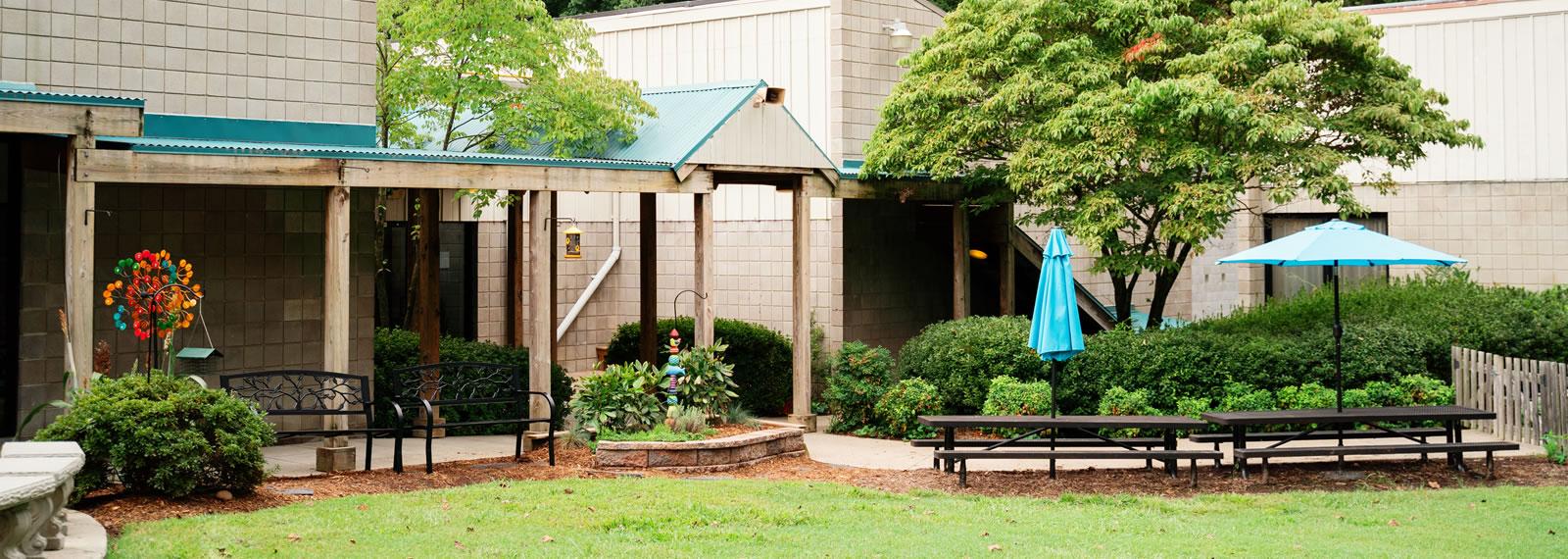Based on Italian physician Maria Montessori’s psychological research, the Montessori method is a popular and well-respected style of child-led education. As an educator, Dr. Montessori observed that when children are allowed the freedom to explore their own interests, they are more likely to enjoy learning and seek out education for themselves. Following Dr. Montessori's techniques, many educators now split their teaching environments into five crucial areas of the Montessori classroom to encourage self-led learning.
The Five Areas of the Montessori Classroom
The focus of Maria Montessori's methods was to balance guidance with freedom, because with freedom comes responsibility. Through a framework, adults guide the child, and the child has freedom within those limits. By allowing children the freedom of choice, they then feel empowered. Dr. Montessori tried her methods on her students and found that children displayed an overwhelmingly positive response to this type of learning. Throughout her career, Dr. Montessori documented her methods carefully, and her writings have been used to found Montessori schools all over the world.
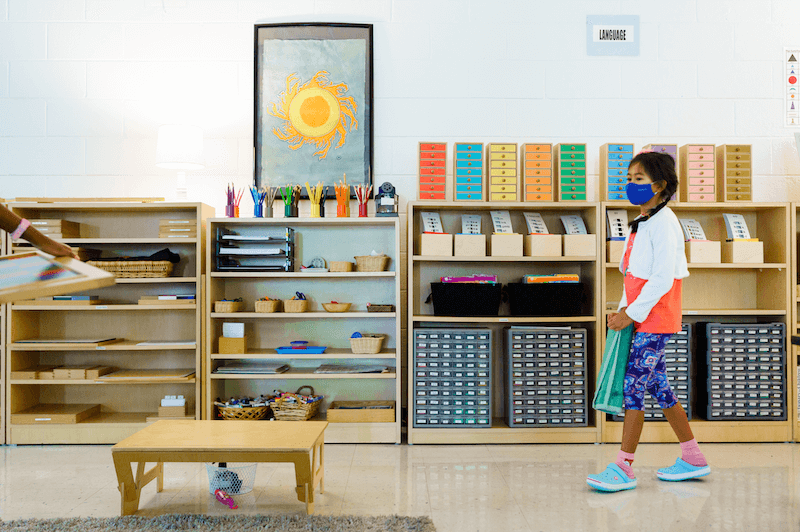 The Montessori method helps give children a sense of responsibility and consideration, both for themselves and others. Most Montessori practitioners divide their classrooms into five areas, representing five critical areas that children must understand to have a successful and fulfilling life. These areas encompass a range of practical and cognitive skills and help children develop a broader interest in the world around them.
The Montessori method helps give children a sense of responsibility and consideration, both for themselves and others. Most Montessori practitioners divide their classrooms into five areas, representing five critical areas that children must understand to have a successful and fulfilling life. These areas encompass a range of practical and cognitive skills and help children develop a broader interest in the world around them.
How Does the Montessori Method Work?
Dr. Montessori believed that children respond well to freedom within a structured educational environment. While guided through lessons by a guide, her students were allowed to structure their time based on their interests, desires, and needs. In this sense, the children were given a great deal of autonomy over how they spent their schooldays.
The hallmark of a Montessori education is based on nurturing and cultivating the child’s natural desire to learn by:
- Creating student-centered learning environments that are prepared, adaptive and responsive to student needs
- Providing hands-on concrete experiences with specifically-designed Montessori materials
- Encouraging exploration, problem solving and creative reasoning as part of the learning process
- Supporting the development of the whole child, socially, emotionally, cognitively and physically
- Fostering intrinsic motivation by focusing on process rather than product
- Offering multi-aged groupings and social settings as a community within each classroom
- Focusing on cooperation, collaboration and mutual respect
- Promoting “freedom within limits” by providing opportunities for self-directed choices within an ordered and structured framework
- Nurturing independence, leadership, responsibility and self-reliance.
What Is a Montessori School?
Although many educational centers utilize Montessori methods in their teaching style, a Montessori school is accredited explicitly by an official Montessori association like the American Montessori Society. If you're interested in enrolling your child in an environment where they will get the full benefit of Montessori's methods, be sure to check out the school's accredited status. This will ensure that your child is being taught by practitioners who have certified experience in the Montessori model.
What Are the Benefits of the Montessori Method?
One of Montessori's key benefits of teaching is that it facilitates a lifelong love of learning. Children do not have education imposed on them but, instead, are allowed to pursue their interests. Therefore, they see education as something enjoyable rather than as a chore, which helps them develop a more sustainable and pleasurable attitude to gathering knowledge.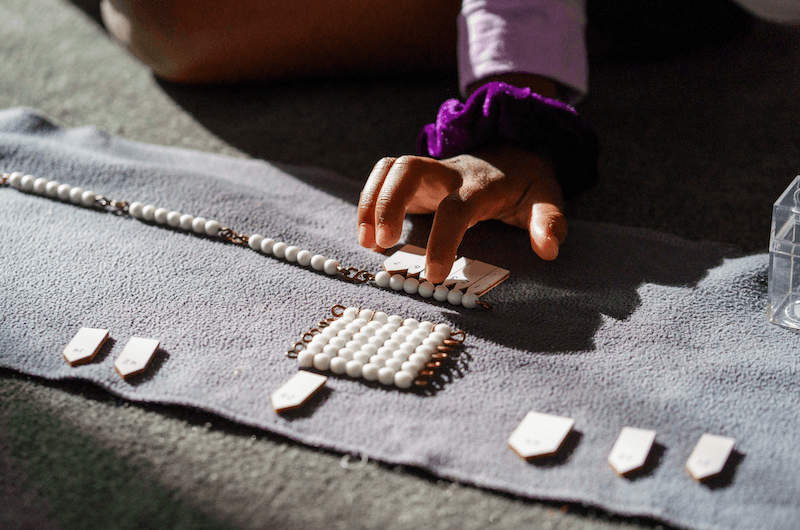
The Montessori method is also carefully arranged so that the activities available suit children's needs across different ages. There is a deep awareness of child development among Montessori practitioners, and classrooms are specially designed to help children through vital learning stages. Many Montessori schools encourage children from different age groups to mix in age-appropriate ways so that children experience a diverse range of social experiences.
Montessori schools also encourage children to take responsibility when it comes to caring for themselves and their environment. Practical life exercises are not forced on them, so children do not come to resent these activities. Instead, they are treated as learning experiences that can help children develop in unique ways. In general, children who go through a Montessori education display higher levels of positive interaction with others and display high levels of confidence in carrying out practical tasks.
How Is a Montessori Classroom Divided Up?
Montessori environments generally include five distinct areas that children can move between as they please. These five areas cover essential skills and learning experiences that will give children a foundational basis in gathering knowledge, understanding the world, and learning to explore their environment. These five areas are generally divided as follows:
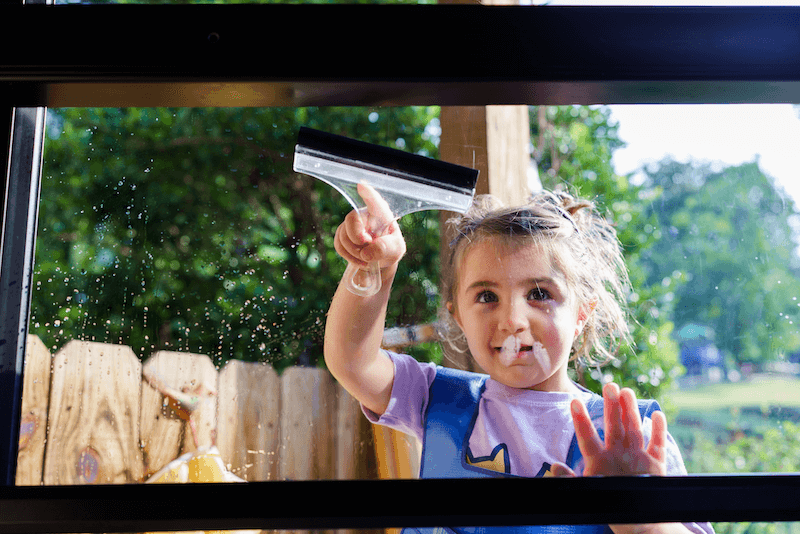 1. Practical Life Skills
1. Practical Life Skills
In Dr. Montessori's initial research, children were encouraged to help clean their environment (by dusting and sweeping) before starting their school day. However, this practical aspect of the method is an essential factor in Montessori's overall style of learning. Practical tasks are not separated from academic ones or seen as less important but are viewed as a crucial way for children to learn to interact with the world and their environment.
Therefore, Montessori classrooms contain a practical area where children can use child-sized versions of tools for everyday activities. These can vary but often include materials for cleaning or tasks which involve hand-eye coordination. These tasks help children develop fine motor skills and dexterity. They are also useful for improving children's concentration and focusing on a practical task, rather than rushing through it to get to the next thing.
2. Language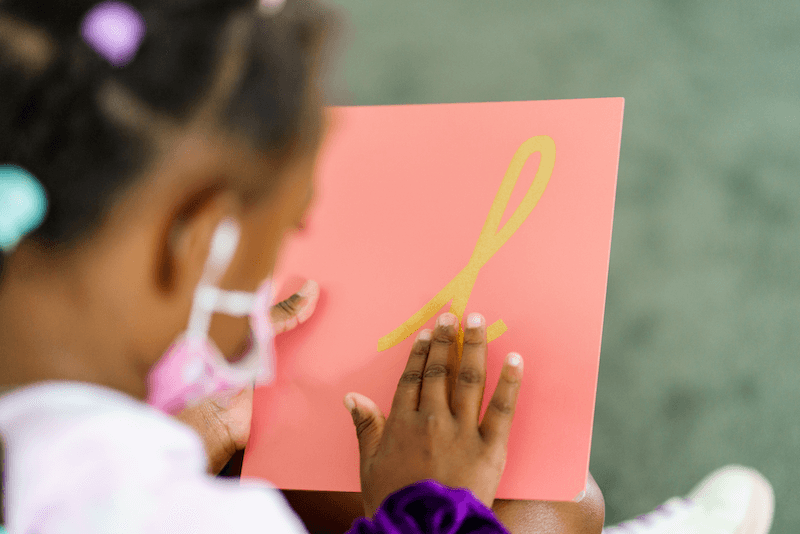
Language is an essential foundational skill that children are encouraged to play with and develop in their own time in a Montessori classroom. Language areas vary by age and often focus on phonetic learning for younger pupils. Tools, such as wooden letters or movable alphabet boards, help incorporate a sensory experience into language learning. For older students, the focus can be on reading and literary exploration.
3. Sensory Skills
Sensory learning is an important aspect of play for children and helps them develop problem-solving and perception skills. In the sensory area, children have an opportunity to play with objects and tools that engage their five senses. This open-ended learning style leads to more creative thinking, as children do not have a prescribed way that they must interact with objects. Instead, they are free to make links and associations as they like, improving their ability to think for themselves.
4. Mathematics
In this area, children will find supportive materials to help them grasp numerical thinking at their own pace. Children can experiment with number puzzles, bead chains, or microeconomics. Having a good foundation in mathematics allows them to engage with real-world skills while also improving their intellectual faculties and problem-solving abilities.
5. Cultural
Montessori schools encourage diverse learning and support children's need to explore topics on various cultural topics. These topics include geography, science, artistic subjects, and more. This ensures that learning is never a chore and always an educational journey for your child, with few limits on which subjects they explore.
Enrolling your child in a Montessori school is a great way to ensure that they receive a fully rounded education focusing on real-world skills and progressive knowledge acquisition. For more information on the Montessori method in practice, contact Richmond Montessori School today!

